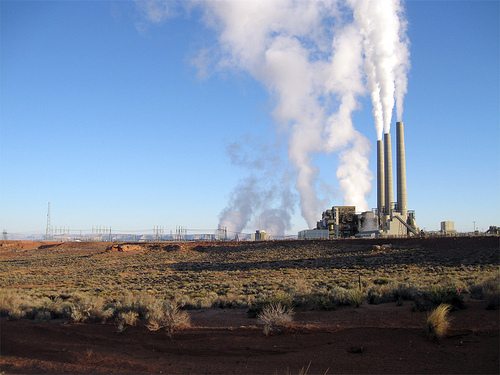

Features
How confident are scientists that Earth will warm further over the coming century?
In a short guide explaining the science behind climate change, the Royal Society describes scientists as being “very confident” that the earth will continue to warm over the coming century.
How confident are scientists that Earth will warm further over the coming century?
Very confident. If emissions continue on their present trajectory, without either technological or regulatory abatement, then warming of 2.6 to 4.8 C in addition to that which has already occurred would be expected by the end of the 21st century.
Warming due to the addition of large amounts of greenhouse gases to the atmosphere can be understood in terms of very basic properties of greenhouse gases. It will in turn lead to many changes in natural climate processes, with a net effect of amplifying the warming. The size of the warming that will be experienced depends largely on the amount of greenhouse gases accumulating in the atmosphere and hence on the trajectory of emissions. If the total cumulative emissions since 1870 are kept below about 1 trillion (million million) tonnes of carbon, then there is a two-thirds chance of keeping the rise in global average temperature since the pre-industrial period below 2C. However, over half this amount has already been emitted.
Based just on the established physics of the amount of heat CO2 absorbs and emits, a doubling of atmospheric CO2 concentration from pre-industrial levels (up to about 560 ppm) would by itself, without amplification by any other effects, cause a global average temperature increase of about 1C. However, the total amount of warming from a given amount of emissions depends on chains of effects (feedbacks) that can individually either amplify or diminish the initial warming.
The most important amplifying feedback is caused by water vapour, which is a potent greenhouse gas in the atmosphere as warmer air can hold more moisture. Also, as Arctic sea ice and glaciers melt, more sunlight is absorbed into the darker underlying land and ocean surfaces causing further warming and further melting of ice and snow. The biggest uncertain factor in our knowledge of feedbacks is in how the properties of clouds will change in response to climate change. Other feedbacks involve the carbon cycle. Currently the land and oceans together absorb about half of the CO2 emitted from human activities, but the capacities of land and ocean to store additional carbon are expected to decrease with additional warming, leading to faster increases in atmospheric CO2 and faster warming. Models vary in their projections of how much additional warming to expect, but all such models agree that the overall net effect of feedbacks is to amplify the CO2 — only warming by a factor of 1.5 to 4.5.
For more information from the Royal Society’s guide click here.
Photo: queaks2569 via Flickr


 Features11 months ago
Features11 months agoEco-Friendly Cryptocurrencies: Sustainable Investment Choices

 Energy11 months ago
Energy11 months agoThe Growing Role of Solar Panels in Ireland’s Energy Future

 Energy10 months ago
Energy10 months agoGrowth of Solar Power in Dublin: A Sustainable Revolution

 Energy10 months ago
Energy10 months agoRenewable Energy Adoption Can Combat Climate Change

















